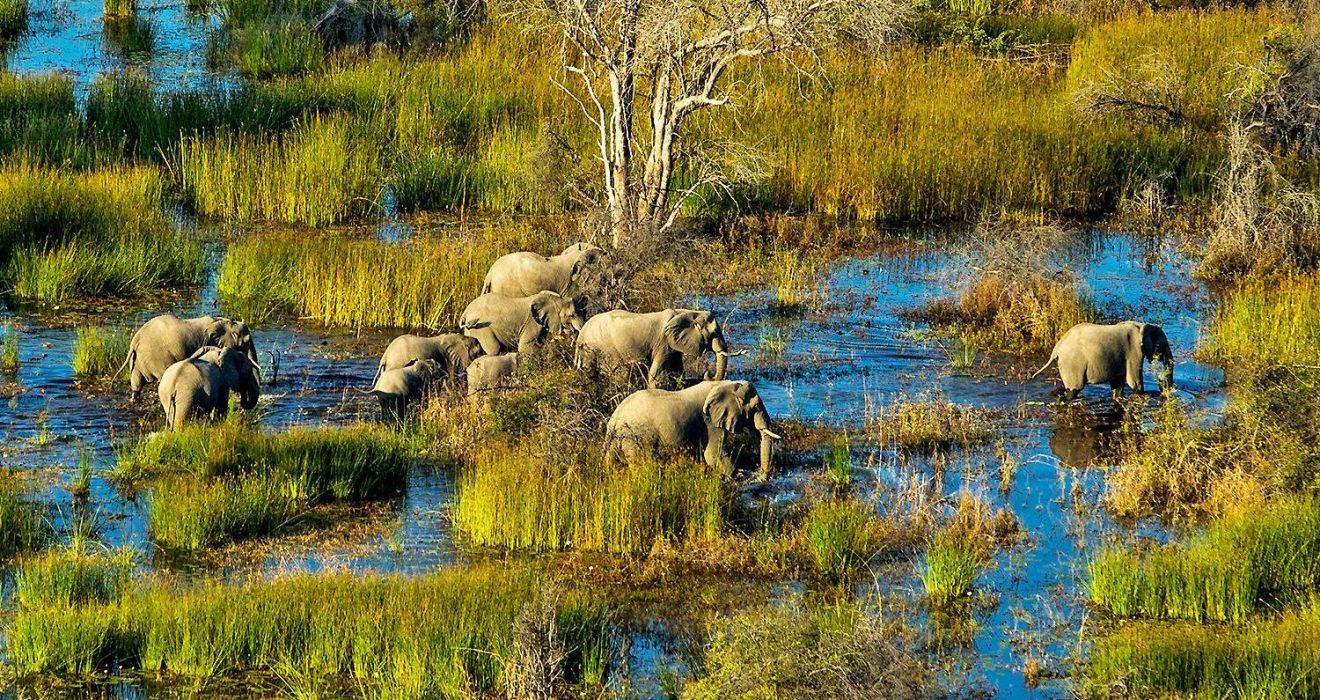In the vibrant setting of Riyadh, Saudi Arabia, the annual meeting of UNESCO’s World Heritage Committee in September brought the Okavango Delta into sharp focus. The committee, resonating with shared concern, highlighted the potential risks stemming from oil and gas exploration that cast a shadow over the integrity of this UNESCO World Heritage Site. Known for its remarkable biodiversity, sheltering endangered African savanna elephants and wild dogs, the Okavango Delta’s ecological significance reverberates across the expansive canvas of the broader Okavango watershed. This interconnected ecosystem, acting as a crucial support system, weaves its influence across the landscapes of Angola, Namibia, and Botswana, binding communities in a delicate balance with the diverse wildlife that calls this region home.
Risks Highlighted by Recent Research
The gravity of potential environmental hazards intensifies with recent research, unveiled in October 2023 through the journal Physics and Chemistry of the Earth. This study accentuates the substantial risk of pollution looming over the Okavango Delta and its interconnected watershed, primarily stemming from the extensive drilling endeavors conducted by Reconnaissance Energy Africa (ReconAfrica). The Canadian company’s fervent exploration for oil and gas in this ecologically sensitive region has sparked widespread apprehension, invoking a collective call for an immediate prohibition on such activities. This urgent plea is rooted in the necessity to conduct comprehensive studies that delve deeper into the far-reaching impacts of ReconAfrica’s drilling activities, ensuring a thorough understanding before any further actions are taken.
Committee’s Recommendations and Growing Support for Expansion
UNESCO committee members, representing 195 countries, recommended enlarging the World Heritage site to include the entire Okavango watershed. This move aims to safeguard the interconnected water system and the broader ecosystem. Notably, Filipe Silvino de Pina Zau, Angola’s Minister of Culture and Tourism, and Thato Raphaka, Botswana’s Ministry of Environment official, expressed support for the expansion. The goal is to encourage cooperation among Botswana, Angola, and Namibia for a potential transboundary extension of the World Heritage Site.
The Okavango Watershed: A Wonder Without Borders
Unveiling its marvels, the Okavango watershed stands as an intricate, interconnected system commencing its journey in the elevated Angolan highlands, gracefully traversing Namibia, and ultimately converging in the resplendent embrace of the lush Okavango Delta in northern Botswana. This distinctive inland delta, a lifeline during the region’s prolonged dry season, now finds itself imperiled by potential pollutants stemming from the fervent pursuit of oil and gas extraction. The looming threat to this interconnected ecosystem assumes heightened significance against the backdrop of persistent and intensifying droughts, a harsh reality attributed to the escalating impacts of climate change. As climate patterns become increasingly unpredictable, safeguarding this precious natural wonder becomes an urgent imperative, ensuring the resilience and perpetuity of the Okavango watershed’s delicate ecological balance.
Formalizing the Expansion Process
The critical step towards expanding the Okavango World Heritage Site involves a formal application process that the participating countries must navigate. This process serves as the foundational mechanism for solidifying and extending the protective boundaries of the UNESCO-designated site. The countries involved, namely Botswana, Namibia, and Angola, are required to collaboratively compile and submit a detailed application, outlining the reasons for the proposed expansion and the benefits it would bring to the Okavango Delta and its broader ecosystem.
The resolution to expand the World Heritage Site is a testament to the committee’s unwavering dedication to safeguarding the Okavango ecosystem. This commitment goes beyond mere declarations and symbolic gestures, as it involves practical steps to conduct necessary studies. The aim is to garner support from donors who share the vision of preserving this unique natural wonder. These studies are crucial in providing a comprehensive understanding of the ecological, cultural, and economic significance of the proposed expansion, reinforcing the scientific basis for the decision.
Collaborative Conservation Efforts
For more than five decades, the UNESCO World Heritage Convention has played a pivotal role in empowering nations to actively conserve and protect both natural and cultural treasures. Now, as the Okavango Delta faces unprecedented challenges, the collaborative efforts of Botswana, Namibia, Angola, UNESCO, and other key partners have become paramount. In order to fortify the protective measures for this invaluable shared resource, a cohesive plan for the site’s extension is now at the forefront of the agenda. This comprehensive strategy, developed through collective deliberation, must be meticulously presented to the 21-nation committee during its annual meeting in 2024, with the ultimate goal of securing legal adoption.
The imperative to extend the boundaries of the World Heritage Site arises not only from ecological concerns but also from the shared responsibility to preserve a vital lifeline for both wildlife and local communities. Local voices, epitomised by figures like Joseph “Jay” Haikera, underscore the potential inherent in uniting Botswana, Namibia, and Angola in a united front for conservation. Haikera’s emphasis on the collaborative endeavours highlights the belief that the strength of this united effort lies in its ability to transcend geographical and political boundaries, providing a beacon of hope for the Okavango Delta’s sustainable future. As the nations involved, along with UNESCO and supporting partners, navigate the complex process of legal adoption, they embark on a journey to not only protect a shared resource but also set a precedent for global conservation efforts rooted in unity and collective responsibility.”

